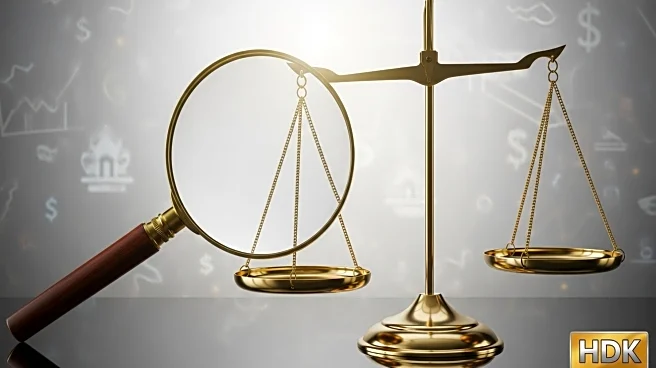What's Happening?
JPMorgan Chase reportedly settled a lawsuit with Jeffrey Epstein in 2011, paying him $9 million over claims related to his investment in a Bear Stearns hedge fund. Epstein had invested $57 million in the fund, which collapsed during the 2008 financial crisis. The settlement was part of JPMorgan's acquisition of Bear Stearns, which included taking on its liabilities. The settlement has drawn scrutiny due to Epstein's controversial background and the bank's decision to settle for less than 10% of Epstein's original $70 million demand.
Why It's Important?
The settlement highlights the complex legal and financial entanglements resulting from the 2008 financial crisis. It raises questions about the due diligence and risk management practices of major financial institutions. The case also underscores the challenges banks face in managing legacy liabilities from acquisitions. The revelation could impact JPMorgan's reputation and prompt further scrutiny of its historical dealings with controversial clients.
Beyond the Headlines
The settlement with Epstein may prompt discussions about the ethical responsibilities of financial institutions in managing client relationships, especially with individuals involved in criminal activities. It also raises broader questions about the transparency and accountability of banks in handling settlements and legal disputes.









